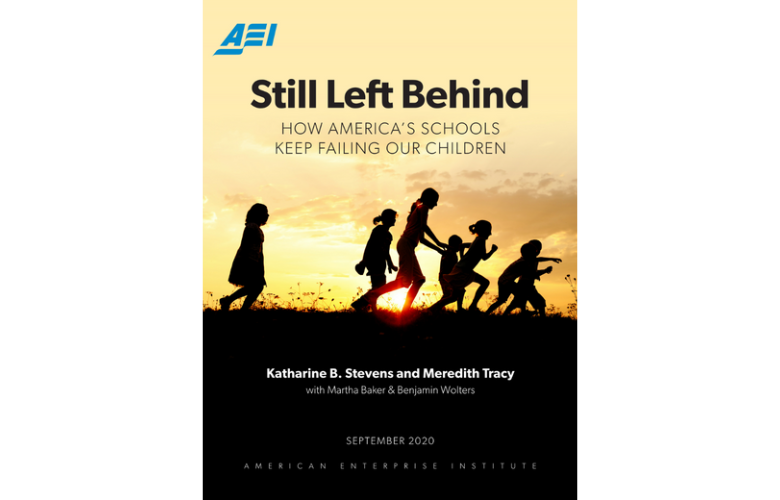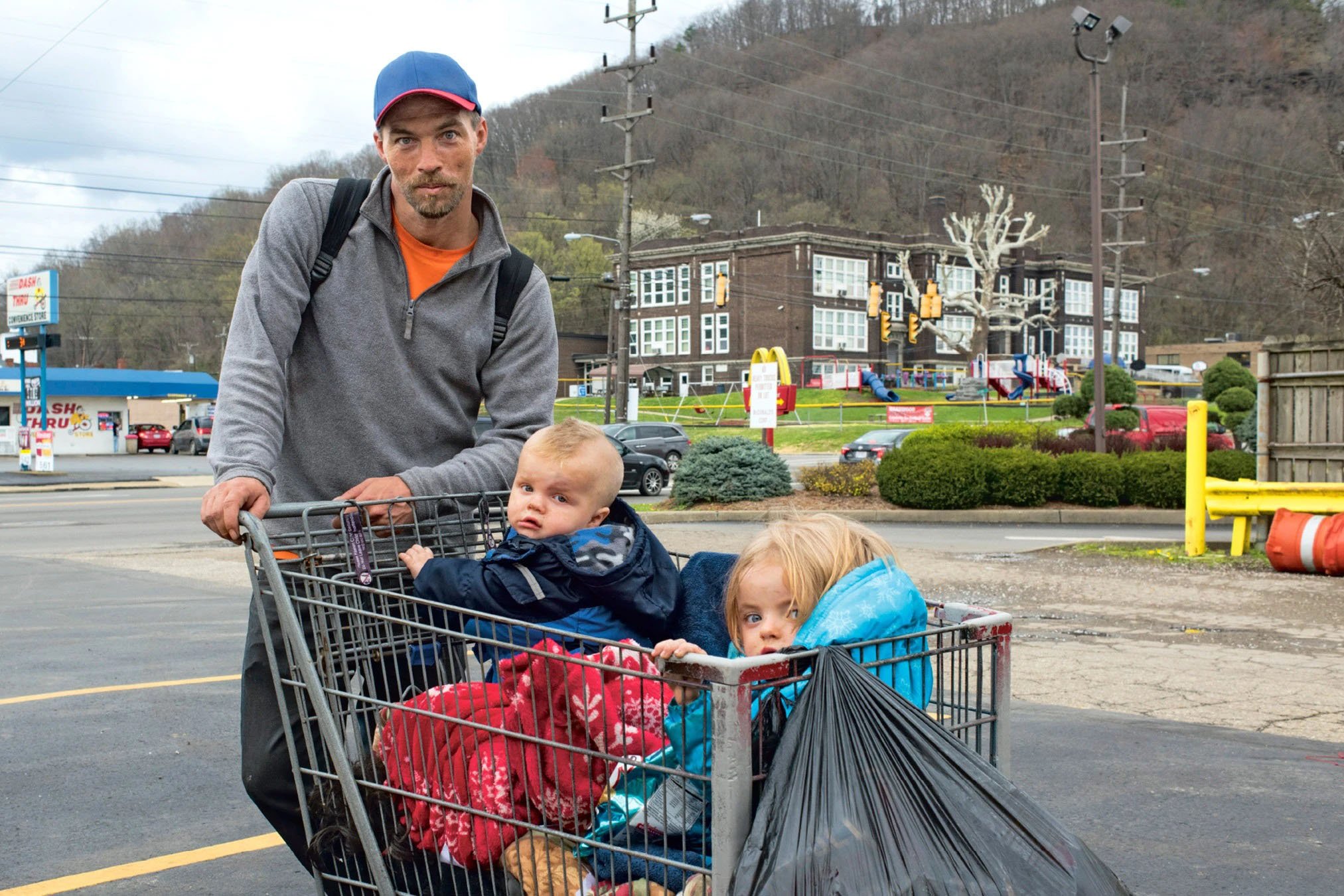All Work
Early Childhood Education
The Economics of Flourishing: On Education and Early Childhood
Katharine Stevens joins the Economics of Flourishing series at the Archbridge Institute to discuss the role of education, parental stability, and skills development in fostering human flourishing.
The Crucial Role of Nurturing Care in Early Childhood (with Phil Fisher)
Dr. Phil Fisher joins the podcast to discuss his pioneering work on the effects of early stressful experiences on young children’s development.
“Build Back Better”: A Flawed Agenda or the Right Plan for Early Care and Education Policy?
An expert panel joins CCFP and the Niskanen Center to discuss Katharine Stevens’s new report on the strengths and weaknesses of Build Back Better’s early care and education legislation, and the best path forward for federal policy.
Empowering Parents and Scaling Preschool Success (with Art Rolnick)
Katharine Stevens interviews economist Art Rolnick about his nationally recognized work with the Minnesota Early Learning Scholarships program, a parent-choice-driven model providing scholarships to parents with children from ages prenatal to five.
How Early Childhood is the Foundation of Social Capital (with Chris Bullivant)
Katharine Stevens interviews Chris Bullivant about why social capital matters to a thriving society, and how the foundation of social capital is formed through children’s secure attachment established in the birth-to-three period.
Parenting Is the Key to Early Development and Social Mobility – Part 2 (with James Heckman and Jorge Luis Garcia)
In the second part of this two-part conversation, Katharine Stevens continues her discussion with economists James Heckman and Jorge Luis Garcia about their pioneering research on how improving parenting is the essential mechanism of effective early childhood programs.
Parenting Is the Key to Early Development and Social Mobility (with James Heckman and Jorge Luis Garcia)
In the inaugural episode of CCFP's new podcast, Katharine Stevens interviews renowned economists James Heckman and Jorge Luis Garcia about their collaborative research on the power of early childhood interventions to promote social mobility and build human capital.
If Ever There Were a Time for Kindness: ‘THE ANTIDOTE’
Katharine B. Stevens talks with the filmmakers of “THE ANTIDOTE,” Kahane Cooperman and John Hoffman, about how they hope their new film drives a national discussion about the essential role of kindness and compassion in a civil democracy.
Two Generations, One Future: Aligning State Systems for Family Success
Leaders from Ascend at the Aspen Institute join Katharine Stevens to discuss how their two-generation approach to improving social welfare programs aligns services around parents and their young children, helping build an intergenerational cycle of opportunity for families.
Improving Early Childhood Development by Allowing Advanced Child Tax Credits
Katharine Stevens and Matt Weidinger propose allowing parents to advance future child tax credits into the earliest years of their child’s life, strengthening families' ability to choose how and by whom their children are cared for during the formative first years of development.
We Need a National Tutoring Program to Avert Educational Catastrophe
As a third COVID wave sweeps the United States, achievement gaps between higher- and lower-performing students are widening. A national tutoring program is our best chance for averting an educational disaster.
Schools Won’t Work Any Better for Disadvantaged Children After COVID Than Before It
We need good schools now more than ever. But it’s hard to see how they’ll be any better after COVID than they’ve been for decades before it.
Taking Stock of a Half-Century of Failed Education Reform
Our excessive focus on schooling — rather than the non-school environments that most powerfully shape children’s lives — continues to hurt the very children we are trying so hard to help.
Why Children Can’t Read — and What We Can Do About It
Early reading proficiency is a crucial predictor of school, work, and life success. But a deeply flawed idea about how to teach reading is widening early inequalities, setting millions of children up to fail.
Still Left Behind: How America’s Schools Keep Failing Our Children
One-third of lower-income eighth graders still fail to demonstrate even minimal competence in reading and math, and wide achievement gaps persist in every state, despite decades of ever-intensifying school reform and steadily increased spending,
The Case for Home-Based Child Care
Small in-home centers care for fewer kids at a time, which means less opportunity for disease transmission — and more opportunity for small-business owners.
Practical Perspectives on “A Roadmap to Reducing Child Poverty”
The National Academies of Sciences, Engineering, and Medicine recently released a report, “A Roadmap to Reducing Child Poverty,” describing two packages of federal policies aiming to cut US child poverty by half within a decade. An expert panel joins Katharine Stevens to discuss the realistic prospects for the report’s proposals to improve children’s lives.
Practical Perspectives on “A Roadmap to Reducing Child Poverty”
The National Academies of Sciences, Engineering, and Medicine recently released a report, “A Roadmap to Reducing Child Poverty,” describing two packages of federal policies aiming to cut US child poverty by half within a decade. An expert panel joins Katharine Stevens to discuss the realistic prospects for the report’s proposals to improve children’s lives.
The Socioeconomic Achievement Gap Hasn’t Budged in Half a Century. Now What?
A groundbreaking new study has found that despite enormous public investment, achievement gaps between wealthier and poorer children have remained unchanged over the past 50 years.
America’s Forgotten Communities — Interview with Chris Arnade
Photojournalist Chris Arnade joins Katharine Stevens to explain why he abandoned his Wall Street banking job to chronicle the lives of 'forgotten Americans,' and what he's learned from five years spent traveling across the country.





















